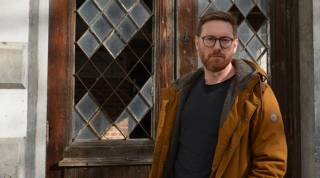“Collective Experiences in History” 13-15 March
About the conference
The ongoing Covid-19 pandemic as well as the escalating climate crisis point to the acute necessity of understanding collective experiences. How do we conceive of and perceive what happens to us together? How do we collectively react (or fail to react) to such experiences? The era of social media creates new ways to share experiences and emotions, revealing how collective experiences can be produced and mediated. Why do some events and experiences seem to be collectively shared and acted upon while others do not?
Historical research can provide important answers to these questions, for example by historicizing the dynamics between subjective and collective experiences, by analyzing the ways shared realities are constructed in different historical contexts, and by studying the changing roles of different media and systems of meaning in shaping collective experiences. Nevertheless, if we wish to elaborate on collective experiences and their limits, the available historiographical approaches and methodologies need to be further developed. Often, the “collective” is used loosely to refer to any social grouping, synonymous with a number of other terms (social, shared, communal, joint, national, etc), or it is avoided altogether in order not to presume any collective mind or monolithic identity. Historians’ suspicions towards collective experiences are well-founded: when looked at through intersectional lenses – class, age, gender, disability, ethnicity, etc. – seemingly collective experiences are usually diverse. Yet while hardly any historian assumes that a nation or a people experience events uniformly, it is still commonplace to use a shorthand, such as “Finnish” or “imperial” experience. What can historians learn from the social and behavioral sciences in thinking about collective experiences and emotions? And what is the historian’s contribution to the study of collective experiences?
To answer these and other related questions, the conference will be an opportunity to develop collective experiences as a concept for historical analysis and explanation. Professor Piroska Nagy (Université du Québec à Montréal), Professor Mikko Salmela (University of Copenhagen) and Professor Maarten Van Ginderachter (University of Antwerp), will provide wide-ranging intellectual keynote lectures to stimulate our consideration of collective experiences in history.
Programme
Monday, 13 March 2022
9.00–9.10 Welcome & Opening Words by Pirjo Markkola (HEX Director) (Auditorium K103)
9:10–10:10 Keynote: Piroska Nagy: Collective experiences, long-neglected: Elements for a history (Auditorium K103)
10:30–12:30 Parallel sessions 1:
1a. Settler Colonialism and the Media of Collective Experience (Auditorium K103):
Reetta Humalajoki: “The Imagined “Indian” Experience in Mid-20th-Century U.S. and Canadian Policy Documents”
Aleksi Huhta: “Imperial Appeal, National Indifference: Why Finnish Nationalist Colonialism Failed in Progressive Era North America”
Johanna Skurnik: “Mapping a Collective Experience of Settling North America: The Finnish Geohistorical Imaginations of the Delaware Colony”
Samira Saramo: “‘Like Ash Into the Wind’: Settler Homemaking in Finnish North American Life Writing”
(chair: Pirjo Markkola)
1b. Shared Experiences of Disability and Queerness in Late Medieval and Early Modern Europe (Auditorium K113):
Karen McCluskey: Experiences of Masculinity: mobility impairments in Italian visual hagiographies
Riikka Miettinen: “Running in the woods’ and other cultural scripts of madness in early modern Sweden and Finland”
Thomas Devaney: “Miraculous healing as collective experience”
Rose-Marie Peake: The Child Christ: collective and queer perspectives in an early modern context
(chair: Jenni Kuuliala)
14:00–15:30 Parallel sessions 2:
2a. Structures of Collective Trauma, Illness, Dis-Ease (Auditorium K103):
Rob Boddice: ‘Mass Hysteria and Collective Trauma: Structures of Collective Experience’
Ian Miller: The Collective and Intersectional Politics of Self-Esteem: A History, c.1960-1990
(chair: Rob Boddice)
2b. Feminism in Finland – Women’s Collective Experiences, 1960s–1980s (Auditorium K113):
Arja Turunen: ‘Defining Finnish “Second Wave” Feminism: An Experiential Approach’
Heidi Kurvinen: ‘Finland, Feminism and the Media: Journalists’ Influence in Shaping Experiences of Feminism’
Hannah Yoken: ‘Somatic Feminism: Finnish Women’s Bodily Experiences of Feminist Activism, 1970s-1980s’
(chair: Johanna Annola)
15:45–17:15 Joint session:
3. Collective Experience, Memory and Identity (Auditorium K103)
Hannah Parker: Gender, Loyalty, and Collective Memory of Revolution in Women’s Letters to Soviet Authorities, 1936-40.
Arne Segelke: Creating a collective experience of the past – East-German politics of memory and the revolution of 1918
Vita Yakovlyeva: Childhood experience in history: temporality, space, recognition
(chair: Tuomas Tepora)
17.30 – Get-together in the evening at café Toivo (Tampere University main building 2nd floor, address: Kalevantie 4)
Tuesday, 14 March 2022
9:00–10:00 Keynote: Maarten Van Ginderachter: The everyday nationalism of workers in belle époque Belgium: how to catch the ‘lived nation’ (Auditorium K103)
10:30–12:30 Parallel sessions 4:
4a. Experiencing Conflict in the British and Irish Worlds (Auditorium K103):
Caoimhe Nic Dháibhéid: ‘Experiencing Miracles in Revolutionary Ireland: The Strange Case of the Templemore Apparitions’
Julie Gottlieb: “‘Collective Self-Watching’ (Mass-Observation) Britain’s ‘War of Nerves’: A History from Below of the Munich Crisis”
(chair: Daniel Blackie)
4b. Narrating Collective Experiences – Historical Approaches to Shaping “Us” (Auditorium K113)
Sari Katajala-Peltomaa: Constructing a devotional community? Imagined experiences and imagined ‘we’ in Vadstena brothers’ sermons (in the 15th century)
Mari Hatavara: Composing a shared Finnishness in Topelius’ textbook Boken om Vårt Land (The Book of Our Country 1875)
Reetta Eiranen: Narrative we-construction in family letters and organizational documents in nineteenth and early twentieth century Finland
Anna Ovaska: Fictional construction of a “collective unconscious”: women’s bodily and spatial experiences of oppression in Katherine Mansfield’s “The Daughters of Late Colonel” (1921)
(chair: Ville Kivimäki)
14:00–15:30 Joint session:
5. Emotions, Crowds and Protests (Auditorium K103)
Christian Krötzl: The Easter Pogrom in Prague 1389. On Collective Experiences and Divided Perceptions in Urban Communities
Cathleen Mair: “Transported with Joy”: The Emotions of the Revolutionary Crowd (1789–1792)
Marcia Esteves Agostinho: Experiences and the Emergence of ‘Macroemotions’: Reflections on the History of Brazilian Self-Esteem
(chair: Antti Malinen)
15:45–17:15 Joint session:
6. Communities of Experience (Auditorium K103)
Grace Coolidge: The Collective Experience of the Castilian Noble Family, 1400–1650
Ville Kivimäki, Antti Malinen & Ville Vuolanto: ”Theoretical Perspectives on the Communities of Experience”
Pia Koivunen: The World Youth Festival – A community of shared experiences?
(chair: Raisa Toivo)
19.15–23.00 Conference dinner at restaurant Olympia (Address: Satakunnankatu 10)
Wednesday, 15 March 2022
9:00–10:00 Keynote: Mikko Salmela: What are collective emotions?
10:30–12:00 Parallel sessions 7:
7a. War Experiences (Auditorium K103):
Kristine Alexander: Ralph Connor/Charles Gordon Writing and Re-Writing the First World War
Jason Crouthamel: Religion and Experiences of German Soldiers in the First World War
Ilari Taskinen: War as a collective male experience in soldiers’ letters to their brothers and friends in World War II Finland
(chair: Stephanie Olsen)
7b. Shared and Mediated Experiences (Auditorium K113):
Marja Jalava: The Collective Anxiety about Premature Burial in Nineteenth-Century Finland
Minna Harjula & Heikki Kokko: How experiences construct the social reality: A theoretical-methodological approach for historical research
(chair: Sami Suodenjoki)
12:00–13:30 Lunch break at restaurant Aleksis (Address: Kalevantie 2, Technopolis building)
13:30–15:00 Joint session:
8. Experiencing the Welfare State (Auditorium K103)
Anna Derksen: A Good Home for Whom? Public Discourses on Past Eugenic Practices as Turning Points for Scandinavian Collective Identities
Mette Buchardt & Jin Hui Li: “Feeling Strange” ‒ Newly arrived migrant children’s experiences of welfare state integration politics through schooling in Denmark in the 1970s
Tanja Vahtikari: The Finnish baby box as a site for producing shared experiences of the welfare-state nation
(chair: Hanna Lindberg)
15:15–16:00 Final discussion: Piroska Nagy, Mikko Salmela, Sari Katajala-Peltomaa & Rob Boddice (chair) (Auditorium K103)
Keynote Speakers

Professor Piroska Nagy
Piroska Nagy is Professor of Medieval History at the Université du Québec à Montréal. A world-leading scholar in the history of emotions, Nagy is at the forefront of research into collective emotions in medieval contexts, which she has combined in recent years with enquiries concerning the theoretical and methodological implications of a new turn to ‘experience’. Her recent book with Damien Boquet, Medieval Sensibilities: A History of Emotions in the Middle Ages (Polity, 2018), is a masterpiece of research, analysis and sustained argumentation, covering more than a thousand years of history. She is the principal investigator in a project concerning the religious enthusiasm of crowds from the 11th to the 13th century, funded by the Social Sciences and Humanities Research Council of Canada.
See Piroska Nagy’s website here.
 Professor Mikko Salmela
Professor Mikko Salmela
Mikko Salmela is Associate Professor at the University of Copenhagen, Center for Subjective Research. He is an expert of empirically informed philosophy of emotions. In recent years, he has focused on collective emotions and their functions in the structure of social groups. Currently, he is conducting theoretical research on the relevance of emotions in identity formation and group identification processes, with applications in political psychology. Prior to joining the University of Copenhagen in 2020, Salmela has led projects at the University of Helsinki on the role of shared emotions and empathy in the emergence and reinforcement of communality in urban housing and the role of emotions in interdisciplinary interaction. Salmela is the co-editor of Collective Emotions: Perspectives from Psychology, Philosophy, and Sociology (Oxford University Press, 2014).
See Mikko Salmela’s website here.
 Professor Maarten Van Ginderachter
Professor Maarten Van Ginderachter
Maarten Van Ginderachter is Professor at the Department of History at the University of Antwerp. With his several pioneering contributions to the study of everyday nationalism and national indifference, he has become one of the leading scholars of the history of nationalism in Europe. In his praised book The Everyday Nationalism of Workers: a Social History of Modern Belgium (Stanford University Press, 2019), Van Ginderachter focuses on how nationalism was experienced by ordinary people and reveals the limits of nation-building from above by using an innovative base of sources. He has been the lead investigator in the project Nations and nationalism from the margins, funded by the Research Foundation Flanders, and a core group member of NISE, the international platform for research and heritage on national movements in Europe.
